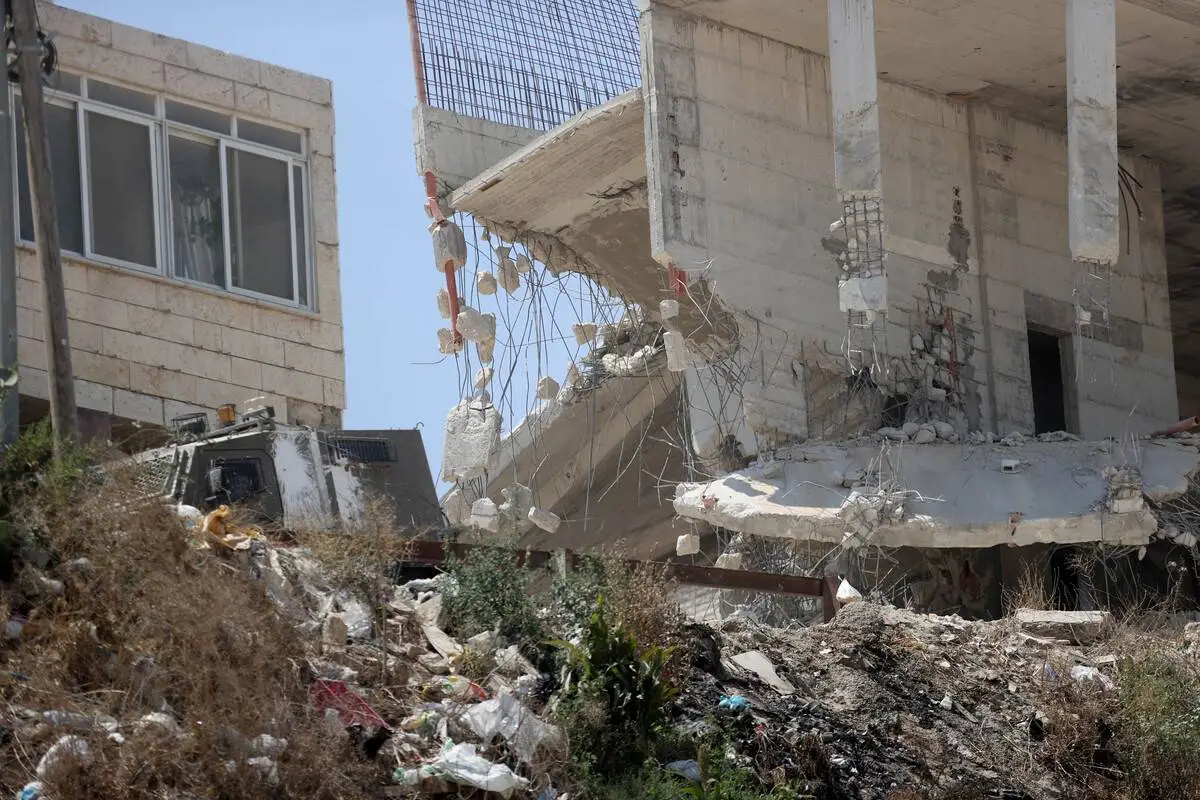09.16.2024 · 4 min reading time
September 16, 2024 · 4 min reading
Data set for 08.17.2024 to 09.16.2024
| Category | Total | 5-day avg | 30-day avg | Trend |
|---|---|---|---|---|
| Total Incidents | 51 | | ||
| Structures | 295 | | ||
| Displaced People | 1277 | | ||
| Men Displaced | 398 | | ||
| Women Displaced | 387 | | ||
| Children Displaced | 492 | |
This data set runs from 08.17.2024 to 09.16.2024, covering a 30-day period. This data is for the 30 days prior to and including the publish date, not Year-to-Date. As the data points out, across Jerusalem and the West Bank, displacement has been trending upwards. This, of course, is by design.
This data only reflects administrative home demolitions in East Jerusalem and the West Bank. This doesn't include the mass demolitions of homes in the Gaza Strip, or in places like the Naqab or the Galilee.
As Israel’s US-backed genocide continues to wreak havoc and destruction throughout the Gaza Strip, the same colonial regime continues to amp up violence against Palestinians across the land.
Today marks 42 years since the Sabra and Shatila Massacre, in which Israeli forces supervised the slaughter of more than 3,500 Palestinian and Lebanese civilians by Israel’s Lebanese collaborators. Commemorating this anniversary, we can see how Israel continues to use regular acts of personal violence — such as the daily massacres in Gaza — alongside systematic, structural violence against Palestinians in order to destroy lives, and important infrastructure. The brief reports below are part of the long history of settler colonial resource theft and elimination.
Since the beginning of the year, Israel has carried out some 315 military operations in the West Bank and East Jerusalem alone, destroying 864 structures and displacing 1,041 individuals, including 286 males, 284 females, and 480 children. On average, Israel carries out 2.19 operations, six structures demolished, and 7.23 displacements daily. In the last 90 days, the intensity has slightly increased, with 149 operations, 385 structures demolished, and 536 displacements, averaging around 2.53 operations, 6.53 demolitions, and 9.08 displacements per day. This period shows a rise in both the frequency of operations and the number of daily displacements compared to the yearly averages, indicating heightened military activity and an intentional effort to drive Palestinians off of their ancestral lands and consolidate into ethnic administrative zones — which has always been a tactic of colonialism regimes.

September 13, 2024 | East Jerusalem, Jabal al Mukabbir
A Palestinian family was forced to self-demolish their under-construction 44 m² residential extension. The structure was part of a second-floor extended family building. The family received an administrative demolition order on September 2, 2024 — leaving them little time to find alternative living arrangements.
September 12, 2024 | West Bank Area C, Deir Ballut
Description: Israeli civil administration and forces demolished a partially completed 160 m² Palestinian residential house in Area C of Deir Ballut, west of Salfit. The demolition was executed under a "1797" military order due to the lack of an Israeli-issued building permit. Palestinians are denied building permits to build on their own land by the Israeli military over 95% of the time.
September 12, 2024 | East Jerusalem, Al Walaja
Description: Jerusalem municipality and Israeli forces demolished two under-construction residential apartments in a three to four-floor building in Al Walaja within Jerusalem's municipal boundaries. The demolitions caused structural cracks in the second-floor apartment, leading the family to vacate for safety concerns. During the operation, Israeli soldiers deployed excessive tear gas, resulting in several cases of tear gas inhalation. Additionally, two women were pushed, and one was handcuffed and detained for approximately one and a half hours.
September 12, 2024 | West Bank Area C, Farsh Alhawa
Description: Israeli civil administration and forces demolished an agricultural structure and water cistern in Farsh Alhawa near Hebron, Area C. The demolition destroyed two water tanks and affected a family of nine, including seven children. Destroying indigenous water systems, such as water wells and irrigation, is rooted in proven systems of colonialism.
September 12, 2024 | West Bank Area C, Tarqumiya
Description: Israeli civil administration and forces demolished a commercial barracks used as a warehouse for a construction materials business near the southern entrance of Tarqumiya, Area C, due to lacking a building permit. The owner was given one hour to evacuate the warehouse, which was accomplished with community assistance. The demolition impacted a family of six, including one child, disrupting their primary source of livelihood. Written notifications were previously issued following the construction of the barracks in 2021.
Destroying homes, water wells, and targeting businesses is not about “law enforcement”. The common practice of retroactive legalization for Israeli settlements in the West Bank shows just how easily unpermitted construction can be authorized — assuming the inhabitants belong to the privileged class within the apartheid system. These targeted attacks on Palestinian homes, infrastructure, and livelihoods are about making life more difficult, forcing families off of their lands, and ultimately putting more land and resources into the hands of the state and its settlers.
As we commemorate the anniversary of the Sabra and Shatila Massacre, and consider the continuity of the past in the reality we currently face, we should all ask ourselves what we are doing to get in the way of genocidal violence. There is no shortage of examples around us of courageous people willing to make personal sacrifices — money, time, resources, and more — to bring us closer to a future of justice.